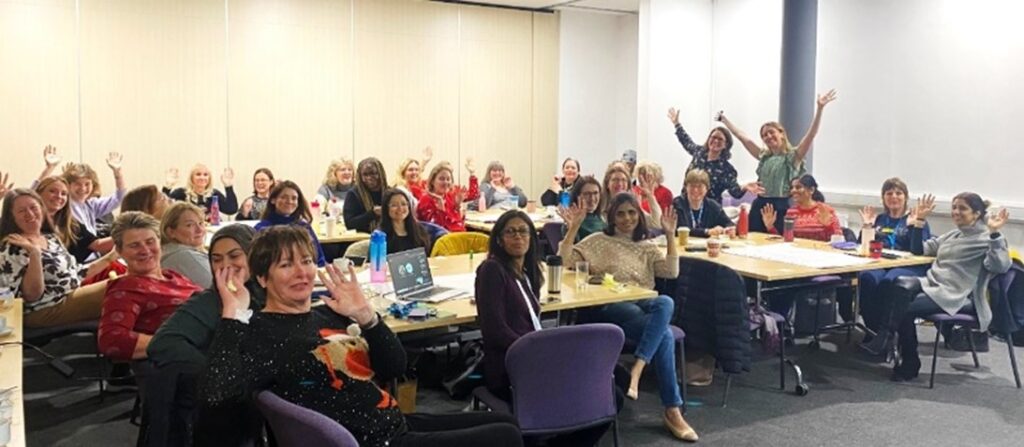16 February 2026
Half term clinics to offer catch-up vaccinations amid outbreak
Parents in Bedfordshire, Luton and Milton Keynes have been urged to bring their children’s vaccinations up to date, following news of a fast-spreading outbreak of…


Home » News » First ‘Using Quality Improvement to Tackle Inequity’ workshop held in BLMK
Health inequalities are avoidable, unfair and systematic differences in health between different groups of people. They can involve differences in health status, such as life expectancy, access to care, wider determinants of health, and other differences.
For example, there are significant differences in healthy life expectancy across communities in Bedfordshire, Luton and Milton Keynes. In Central Bedfordshire, men can expect to live a healthy life nearly 9 years longer than in Luton – 67.9 years compared to 59.2 years.
BLMK HCP’s Inequalities Programme aims to identify and take action against unfair differences, so that everyone in its communities has the best possible chance to live well for as long as possible. The programme has partnered with East London NHS Foundation Trust to deliver a Quality Improvement (QI) approach, a tried and tested method for making measurable improvements, to ensure that progress is being made towards that aim.
Colleagues working across BLMK asked for a better understanding of the basics of QI and how to apply it to inequalities, and said they would like training to be as practical as possible to help them apply it to their work. This feedback led to the development of an exciting new workshop: ‘Using QI to Tackle Inequity’.
The Medicines Optimisation team (who improve the value of medicines in BLMK by ensuring clinical and cost effectiveness) was the first team identified to undertake the training, and they helped shape some of the workshop content to ensure the training was meaningful and tailored to their roles.

The first workshop was held over two half-days in November and December 2022, and its aims were to give people an understanding of:
As part of the workshop, the Medicines Optimisation team each wrote one action they commit to take to identify an equity issue. Some team members emerged with specific project ideas that they will develop, whilst others committed to use an equity lens and QI tools in their day-to-day work. Meanwhile, Fiona Garnett, Associate Director Medicines Optimisation, committed to following up with the team on their project ideas to ensure the team embedded what they had learned about tackling inequity.

Feedback from workshop participants was very positive with:
Other feedback from participants included:
Following the success of the first workshop, other teams will now have the opportunity to participate in future workshops to spread learning. This is a big step towards achieving the commitment to reduce inequalities in Bedfordshire, Luton and Milton Keynes.
If you would like your team to participate in a future workshop, or want to find out more about QI for Inequity, get in touch with Lorna Darknell, Improvement Advisor for Inequalities, at lorna.darknell@nhs.net
For press enquiries, please email blmkicb.communications@nhs.net
16 February 2026
Half term clinics to offer catch-up vaccinations amid outbreak
Parents in Bedfordshire, Luton and Milton Keynes have been urged to bring their children’s vaccinations up to date, following news of a fast-spreading outbreak of…
6 February 2026
Have your say on proposals to relocate Mount Vernon Cancer Centre –…
People across Bedfordshire, Hertfordshire and surrounding areas have been invited to have their say on proposals to relocate Mount Vernon Cancer Centre to a new,…
4 February 2026
Bedford and Central Bedfordshire residents to be offered lung cancer screening
Eligible people living in the Bedford and Central Bedfordshire areas are to be invited to come forward for lung cancer screening, as the mobile screening unit prepares to move to…
4 February 2026
On World Cancer Day, Denise marks 10 years since her first breast…
“I was inundated with messages of hope,” says Denise Coates, thinking back almost a decade to the first time she spoke out about her breast cancer diagnosis. “There’s nothing positive…
2 February 2026
More appointments on offer in general practices, new figures show
The number of appointments available at general practices in Bedfordshire, Luton and Milton Keynes continued to rise in the three months to November 2025, according to new data published by…
29 January 2026
Urgent dental appointments now available in Bedfordshire, Luton and Milton Keynes
Extra appointments are available now for people in Bedfordshire, Luton and Milton Keynes who need urgent or emergency dental care. There are 700,000 extra urgent dental appointments being rolled out…